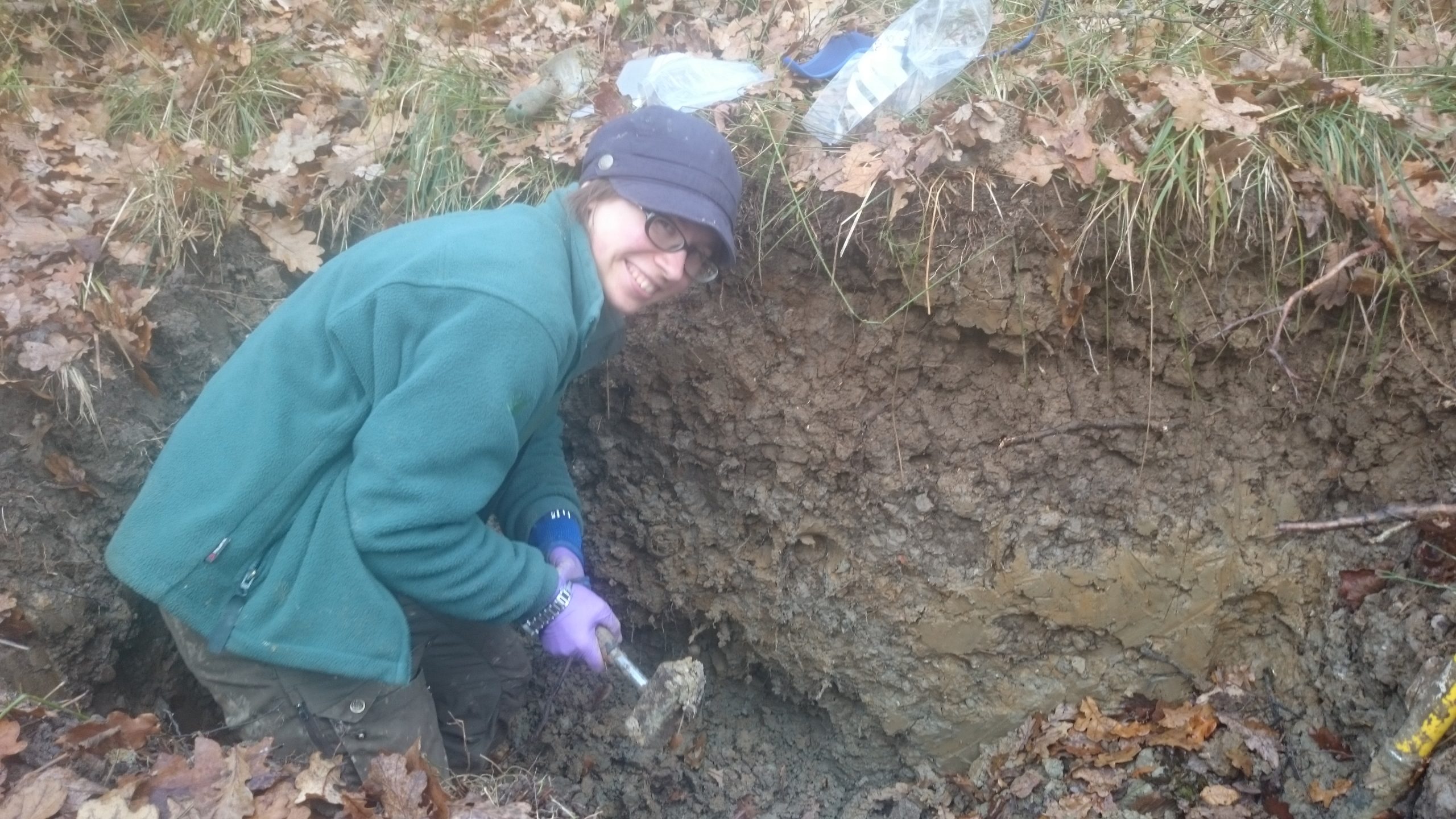Summary
Rita Razauskaite, PhD studentship, University of Aberdeen (2015-2018)
Summary
Forest soils contain large amounts of carbon, which can be lost through forest operations or changing environmental conditions. As forests are perennial with infrequent disturbance, soil organic carbon (SOC) accumulation differs from highly disturbed land uses, with significant accumulation occurring in deeper soil horizons (subsoil). This thesis investigated changes in SOC in both topsoil and subsoil under the main native broadleaved and coniferous species in the UK, oak and Scots pine.
Research Objectives
- To investigate SOC accumulation with forest age in oak and pine chronosequences.
- To demonstrate subsoil importance in the SOC accumulation.
- To investigate differences between topsoil and subsoil processes through soil fractionation and modelling.
Findings and Recommendations
The overall results showed that prolonging forest rotations could allow more carbon (C) to be sequestered in soils. RothC model simulations of pine forests suggested that the lowest soil C stocks occur, not immediately after harvesting, but closer to the middle of the rotation. This shows the importance of including 40- to 50-year-old stands in sampling campaigns to capture the magnitude of these losses. Model SOC pools were compared to measurable fractions for the 220-year-old oak stands. Discrepancy between measured fractions and simulated pools suggested a significant difference in soil processes in the topsoil and subsoil. Current modelling approaches might not be sufficient to represent factors that control SOC dynamics with depth.
Next steps
- To improve RothC model simulations in a subsoil.
- To construct a statistical relationship between forest soil depth and age.
Our Involvement
This PhD research was carried out by Rita Razauskaite at the University of Aberdeen, with supervision by Dr Elena Vanguelova at Forest Research.

PhD student Rita Razauskaite taking cores from a soil pit at Alice Holt forest.
Funding & Partners
-
 University of Aberdeen
University of Aberdeen
